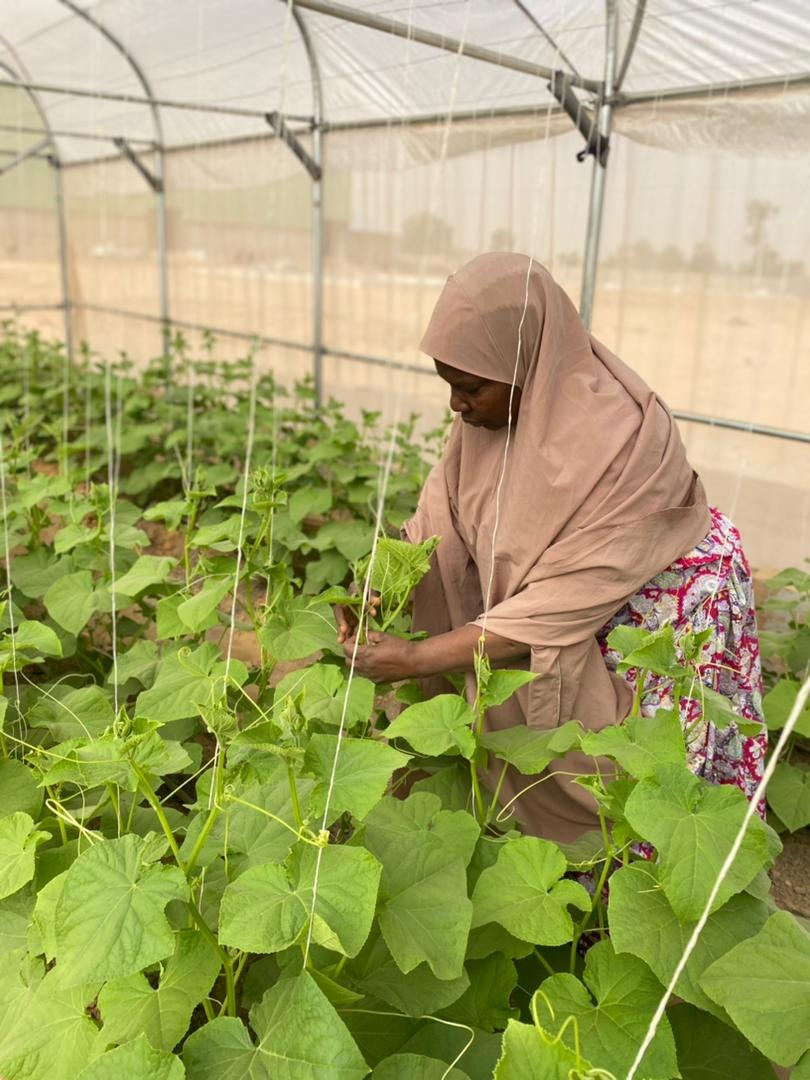Feed the Future Nigeria Agribusiness Investment Activity
Nigeria
Overview
The five-year USAID Feed the Future Nigeria Agribusiness Investment Activity (2018-2023) aimed to strengthen the business enabling environment for agribusiness finance and investment through the promotion of greater private sector investment in agriculture. Thanks to strong relationship-building between government, private sector, and financial stakeholders, the Activity successfully catalyzed over $244 million of finance and investment for over 18,400 micro, small, and medium enterprises (MSMEs), all without relying on grants. By facilitating connections between actors and promoting sustainable and modern agricultural practices in key value chains, the Activity ultimately increased the depth, breadth, dynamism, and competitiveness of Nigeria’s agribusiness sector, boosting food availability, affordability, and long-term food security and nutrition.
Impact
- 22 agricultural-enabling environment policies approved
- 18,437 MSMEs received agricultural-related credit and investment
- $244 million of financing and investment catalyzed for MSMEs
- 19,464 farmers trained on good agricultural practices and entrepreneurship
- 93% of MSMEs showed improved performance after capacity building

The $15.7 million activity, led by CNFA and in partnership with J.E. Austin Associates and Connexus Corporation, sustainably connected thousands of MSMEs and producer organizations with key commercial players in five targeted value chains. Through streamlined regulations, better policies, improved practices, and increased finance and investment, the Activity enhanced the competitiveness and profitability of agricultural enterprises of all sizes. The overarching goal was to improve Nigeria’s agribusiness investment climate, which is crucial for attracting both foreign and domestic investment, leading to greater resilience for agribusinesses and Nigerian farmers.
Click the link here to learn more about how the Activity was able to impact thousands of agribusinesses across Nigeria.
Approach
The Feed the Future Agribusiness Investment Activity adopted a “lead firm” approach, engaging directly with well-established private-sector agribusinesses to support their growth and expansion. The Activity connected thousands of MSMEs and producer organizations with high-performing commercial actors across various value chains, enhancing competitiveness and returns through improved policies, production practices, and increased financial flows.
Simultaneously, the Activity worked with financial institutions to understand their financial products for agribusinesses, and then linked them directly with promising MSMEs that wished to expand. The Activity accompanied these agribusinesses throughout the application process and made sure they were “investment ready” for financial institutions and potential investors.
The Activity also worked with public and private sector stakeholders on needed legal, regulatory, and policy reforms to facilitate the growth and expansion of Nigeria’s agribusiness sector. These policies were drafted after numerous consultations with stakeholders directly affected by the reforms. Once these policies were approved, the Activity continually worked with policy implementers to effectively transfer ownership of the policies and introduce them to monitoring tools that would enable positive progress.
The Activity focused on the following five value chains: rice, maize, soybean, cowpea and aquaculture. Furthermore, it focused its intervention on the following seven states: Benue, Cross River, Delta, Ebonyi, Kaduna, Kebbi and Niger.
The Activity’s strategy delivered results across the following key pillars:
- Improve the Agribusiness Enabling Environment: The Activity focused on reviewing and reforming key agricultural policies at both the state and federal level. With USG assistance, 22 agriculture-enabling policies and 68 consultative processes led to more efficient industry practices, reduced compliance costs, and simplified business functions within targeted value chains.
- Broaden Access to Agribusiness Finance: The Activity improved access to finance for agribusiness MSMEs by engaging both the supply and demand sides of the agricultural finance market, focusing on expanding lending through financial institutions. This effort catalyzed over $188 million in debt financing, benefiting 17,716 MSMEs with agriculture-related credit.
- Facilitate Investment for Agribusinesses: Collaborating with financial institutions and investors, the Activity provided technical and advisory support that catalyzed over $55 million in equity investments for agribusinesses. This enabled 721 MSMEs to receive investment and grow their respective operations.
- Enhance Agribusiness MSME Performance: The Activity selected 50 MSMEs to improve their overall performance and make them more attractive for financial institutions and investors. Through organizational performance improvement interventions, these MSMEs adopted good agricultural practices, met financial institutions’ risk criteria, and became investment ready. Additionally, 93% of supported MSMEs showed improved performance thanks to these interventions.




